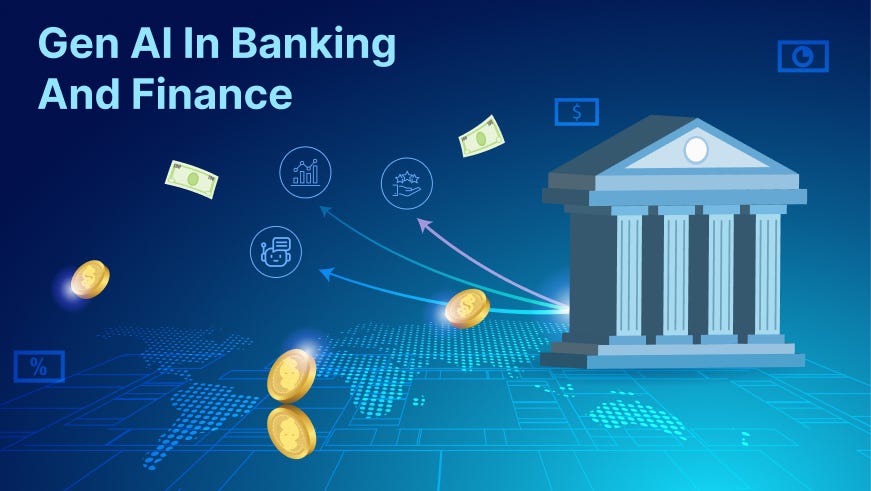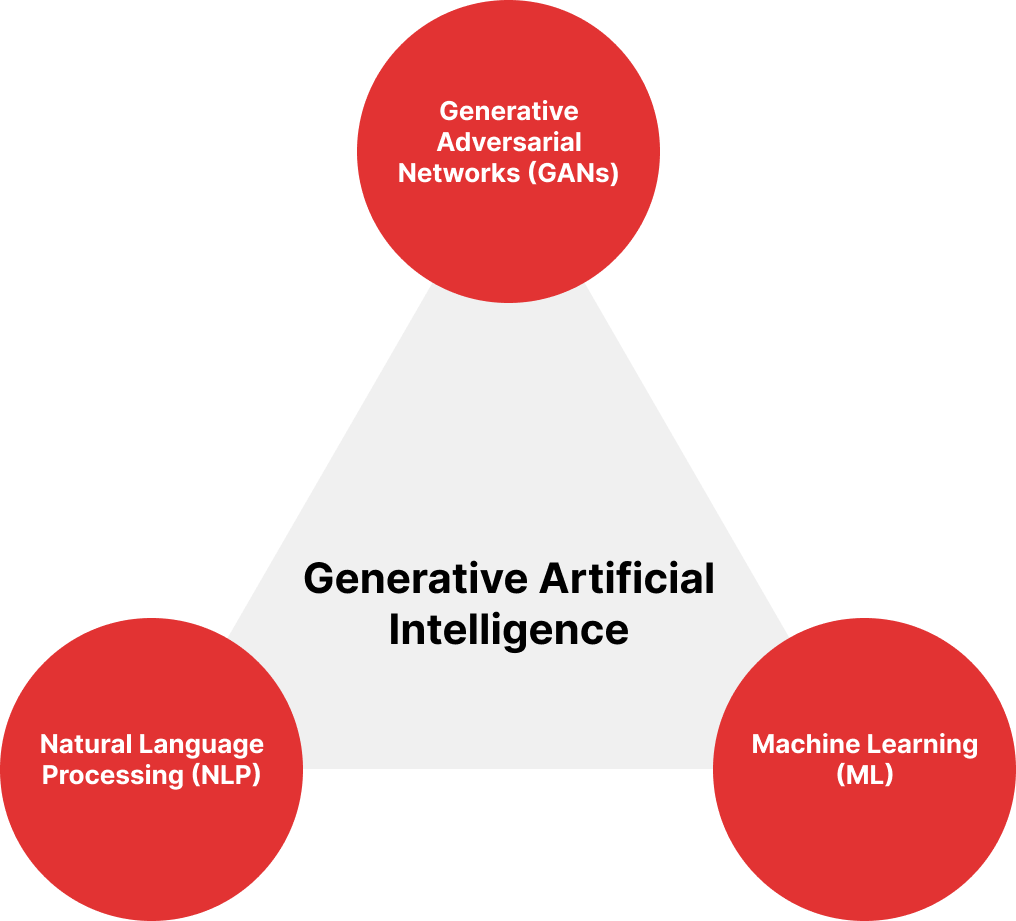101 Emerging Effects of Generative AI in Finance: Enhancing Financial Reporting, Compliance, and Operational Efficiency with AI Agents in 2025

101 Emerging Effects of Generative AI in Finance: Enhancing Financial Reporting, Compliance, and Operational Efficiency with AI Agents in 2025

Introduction
Welcome to the financial frontier of 2025, where Generative AI (GenAI) is redefining the landscape of finance. From revolutionizing financial reporting to streamlining compliance and supercharging operational efficiency, AI agents are transforming how financial institutions operate. This engaging and comprehensive blog explores 101 emerging effects of GenAI in finance, offering actionable insights, monetization opportunities, and a glimpse into the future of financial operations.
Objectives
- Inform: Highlight how GenAI is reshaping financial reporting, compliance, and efficiency.
- Inspire: Present 101 innovative effects to spark creativity and adoption.
- Monetize: Identify profitable opportunities for businesses leveraging AI agents.
- Guide: Provide practical strategies for implementing GenAI in finance.
Importance
Generative AI is a cornerstone of financial innovation in 2025, delivering:
- Accuracy: AI agents enhance precision in reporting and compliance.
- Speed: Automation accelerates processes, reducing turnaround times.
- Cost Efficiency: Minimizes manual labor, saving significant resources.
- Competitive Advantage: Early adopters gain market leadership in a tech-driven era.
Purpose
This article aims to empower financial professionals, fintech entrepreneurs, and business leaders with a clear roadmap for harnessing GenAI. By exploring 101 effects, we provide a practical guide to improving financial operations, ensuring compliance, and unlocking new revenue streams in 2025.
Overview of Profitable Earnings
GenAI in finance is a lucrative opportunity:
- Cost Savings: Automation of reporting and compliance can save 20–50% of operational costs.
- Revenue Growth: AI-driven insights enable premium financial products and services.
- Scalability: AI agents handle increasing workloads without proportional cost increases.
- Market Opportunities: New AI-based services attract tech-savvy clients.
Estimated Earnings Potential (2025):
- Small firms: $100,000–$1M in savings/revenue.
- Mid-sized enterprises: $5M–$20M in efficiencies and new income.
- Large institutions: $50M–$200M+ in cost reductions and market expansion.
101 Emerging Effects of Generative AI in Finance
Below are 101 transformative effects of GenAI, categorized for clarity and designed for 2025’s financial ecosystem.
1. Financial Reporting Enhancements (1–20)
- Generate real-time financial statements with AI-driven data aggregation.
- Automate balance sheet reconciliations using AI agents.
- Create dynamic cash flow forecasts with GenAI models.
- Produce AI-generated profit and loss reports instantly.
- Streamline consolidation of multi-entity financials with AI.
- Generate narrative financial summaries for stakeholders.
- Automate variance analysis with AI-driven insights.
- Create interactive financial dashboards with GenAI.
- Use AI to detect reporting anomalies in real time.
- Generate audit-ready financial disclosures.
- Automate XBRL tagging for regulatory filings.
- Produce AI-driven budget variance reports.
- Generate historical trend analyses for forecasting.
- Create AI-based financial commentary for annual reports.
- Automate expense allocation across departments.
- Generate real-time KPIs for financial performance.
- Use AI to simplify complex financial data for non-experts.
- Produce AI-generated investor presentations.
- Automate intercompany transaction reconciliations.
- Generate predictive financial models for scenario planning.
2. Compliance and Regulatory Advancements (21–40)
- Automate compliance monitoring with AI-driven rule checks.
- Generate regulatory reports (e.g., SEC, FINRA) with AI templates.
- Use AI to track global regulatory changes in real time.
- Create AI-driven AML (Anti-Money Laundering) detection systems.
- Automate KYC (Know Your Customer) processes with AI.
- Generate compliance audit trails with GenAI.
- Use AI to flag non-compliant transactions instantly.
- Produce AI-generated risk disclosure statements.
- Automate GDPR and CCPA compliance for financial data.
- Create real-time compliance dashboards for executives.
- Generate AI-based ESG compliance reports.
- Use AI to predict regulatory risks in new markets.
- Automate tax compliance with AI-driven calculations.
- Generate AI-assisted stress test reports for regulators.
- Create AI-driven internal control frameworks.
- Use AI to monitor third-party vendor compliance.
- Automate FATCA and CRS reporting with AI.
- Generate AI-based compliance training content.
- Use AI to assess data privacy risks in financial systems.
- Create AI-driven whistleblower reporting systems.
3. Operational Efficiency Improvements (41–60)
- Automate invoice processing with AI-driven OCR.
- Streamline accounts payable with AI agents.
- Generate real-time expense tracking reports.
- Automate payroll processing with AI error detection.
- Use AI to optimize vendor payment schedules.
- Create AI-driven procurement cost analyses.
- Automate transaction categorization for accounting.
- Generate AI-based operational risk assessments.
- Use AI to streamline loan processing workflows.
- Automate credit approval processes with AI scoring.
- Create AI-driven supply chain finance solutions.
- Use AI to optimize cash management processes.
- Generate real-time operational KPIs with AI.
- Automate fraud detection in payment systems.
- Use AI to streamline insurance claims processing.
- Create AI-driven workflow prioritization tools.
- Automate customer inquiry resolution with AI bots.
- Generate AI-based operational bottleneck analyses.
- Use AI to optimize staffing schedules in finance teams.
- Create AI-driven process documentation for audits.
4. Customer-Facing Innovations (61–80)
- Develop AI chatbots for 24/7 financial support.
- Generate personalized investment recommendations with AI.
- Create AI-driven financial wellness plans for clients.
- Use AI to tailor loan offers based on customer data.
- Automate customer onboarding with AI-driven KYC.
- Generate dynamic pricing for financial products.
- Use AI to analyze customer feedback for improvements.
- Create AI-driven loyalty programs for banking clients.
- Generate personalized insurance quotes with AI.
- Use AI to predict customer churn and retention strategies.
- Create AI-based financial education content for clients.
- Automate mortgage pre-approvals with AI agents.
- Generate AI-driven credit score improvement plans.
- Use AI to enhance mobile banking experiences.
- Create AI-powered budgeting tools for customers.
- Generate real-time financial health dashboards for clients.
- Use AI to optimize cross-selling opportunities.
- Create AI-driven retirement planning tools.
- Automate wealth management advice with AI.
- Generate AI-based customer satisfaction surveys.
5. Strategic and Predictive Insights (81–100)
- Generate AI-driven market trend analyses.
- Use AI to predict cash flow shortages.
- Create AI-based competitor benchmarking reports.
- Generate strategic investment roadmaps with AI.
- Use AI to simulate M&A financial outcomes.
- Create AI-driven cost optimization strategies.
- Generate predictive models for portfolio performance.
- Use AI to forecast regulatory impacts on operations.
- Create AI-based risk management frameworks.
- Generate AI-driven capital allocation plans.
- Use AI to predict customer lifetime value.
- Create AI-based market entry strategies.
- Generate AI-driven succession planning models.
- Use AI to optimize pricing strategies.
- Create AI-based operational scaling plans.
- Generate AI-driven divestiture analyses.
- Use AI to predict industry disruptions.
- Create AI-based financial stress test scenarios.
- Generate AI-driven innovation roadmaps.
- Use AI to optimize tax strategies.
6. Miscellaneous (101)
- Create AI-generated financial content for blogs, social media, and newsletters to engage audiences and drive traffic.
Potential of Generative AI in Finance
- Global Scalability: AI agents manage cross-border operations seamlessly.
- Adaptability: Evolves with regulatory and market changes.
- Innovation Hub: Enables new fintech solutions and business models.
- Data-Driven Decisions: Unlocks insights from vast financial datasets.
Pros
- Precision: Reduces errors in reporting and compliance by up to 90%.
- Speed: Cuts process times from days to minutes.
- Cost Savings: Lowers operational costs significantly.
- Customer Engagement: Enhances personalization and satisfaction.
- Scalability: Handles growing transaction volumes effortlessly.
Cons
- Implementation Costs: High upfront investment for AI infrastructure.
- Data Security Risks: Sensitive financial data requires robust protection.
- Skill Requirements: Needs specialized AI expertise for deployment.
- Bias Concerns: AI models may perpetuate biases if not monitored.
- Regulatory Uncertainty: Evolving AI regulations may pose challenges.
Conclusion
Generative AI is a transformative force in finance for 2025, driving unprecedented improvements in financial reporting, compliance, and operational efficiency. These 101 effects demonstrate the vast potential for innovation, cost savings, and revenue generation. While challenges like costs and data security exist, the strategic adoption of AI agents positions financial institutions for success in a competitive landscape.
Summary
This article explored 101 emerging effects of GenAI in finance, focusing on financial reporting, compliance, operational efficiency, customer innovations, and strategic insights. It highlighted the importance, earnings potential, pros, and cons, offering a blueprint for leveraging AI agents in 2025.
Suggestions
- Pilot Projects: Start with small-scale AI implementations, like automating reporting.
- Collaborate: Partner with AI vendors for tailored solutions.
- Train Teams: Invest in AI literacy for finance staff.
- Ensure Compliance: Regularly audit AI systems for regulatory adherence.
- Experiment: Test multiple AI applications to find the best fit.
Professional Pieces of Advice
- Explore xAI’s API: Visit x.ai/api for advanced GenAI tools to enhance financial operations.
- Secure Data: Implement end-to-end encryption for AI-processed financial data.
- Validate Models: Test AI outputs rigorously to ensure accuracy and fairness.
- Engage Leadership: Secure executive support for AI initiatives to drive adoption.
- Monetize Smartly: Combine AI effects (e.g., chatbots + analytics) to create premium client offerings.
Thank you for reading this comprehensive guide! Embrace these 101 effects of Generative AI to transform your financial operations and thrive in 2025’s dynamic financial ecosystem.


No comments:
Post a Comment